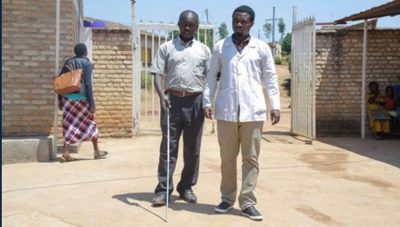Join a powerful, unprecedented alliance for better eye health for all.
Join IAPB-
Choose an alternate language here
“My name is Julian and I am blind. I have been coming to health centre for 10 years mostly for eye treatment as often I feel a lot of pain in my eyes which gives me a terrible headache. In the past I would ask someone to guide me to the centre and we would stand and wait in a long queue for the whole day. I would ask my guide: “How many people are in front of us?” He would not reply to me. It meant that we had to go home and return the next day very early in the morning to stand in line again…”

The organization collaborates with four primary eye care units and two tertiary hospitals in Rwanda and Mozambique, and with a Regional Health Bureau in Ethiopia. In addition, Light for the World partners with Sightsavers in Mozambique, as both organizations are piloting inclusive eye care strategies in the country, to exchange on their learning experiences and develop tools for mainstreaming disability inclusion in eye care services.
Ultimately, the final goal of the “Every Life Matters” programme is to show that eye care services can be and shall be inclusive to all including people with disabilities who have the fundamental right to good quality health and treatment. Therefore, in the coming years we hope to share our experiences and program results with broader stakeholders to make sure that inclusive eye care services are practiced beyond the program.
For more information on the program, please contact Zinayida Olshanska [email protected]